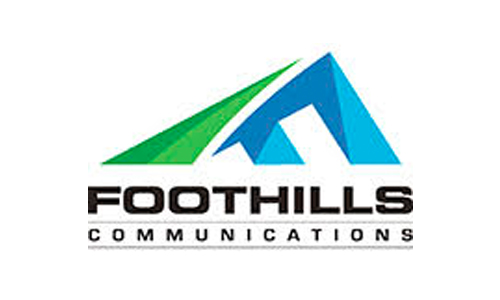FRANKFORT, Ky. – State Auditor Mike Harmon today released the audit of the 2018 financial statement of Magoffin County Sheriff Carson Montgomery. State law requires the auditor to annually audit the accounts of each county sheriff. In compliance with this law, the auditor issues two sheriff’s reports each year: one reporting on the audit of the sheriff’s tax account, and the other reporting on the audit of the fee account used to operate the office.
Auditing standards require the auditor’s letter to communicate whether the financial statement presents fairly the receipts, disbursements and excess fees of the Magoffin County Sheriff in accordance with accounting principles generally accepted in the United States of America. The sheriff’s financial statement did not follow this format. However, the sheriff’s financial statement is fairly presented in conformity with the regulatory basis of accounting, which is an acceptable reporting methodology. This reporting methodology is followed for all 120 sheriff audits in Kentucky.
As part of the audit process, the auditor must comment on noncompliance with laws, regulations, contracts, and grants. The auditor must also comment on material weaknesses involving the internal control over financial operations and reporting.
The audit contains the following comments:
The Magoffin County Sheriff’s Office lacks adequate internal controls over financial records and reporting: This is a repeat finding and was included in the prior year audit report as Finding 2017-001. The sheriff’s office lacks adequate segregation of duties and internal controls over financial record keeping and financial reporting. The bookkeeper and/or office manager was responsible for collecting money, preparing deposits, writing checks, posting to ledgers, performing and maintaining monthly bank reconciliations, and maintaining bank statements and financial reports. There was no documentation of compensating controls, such as oversight by the sheriff or other employees.
The sheriff did not implement an adequate internal control system to allow for the proper segregation of duties or provide any oversight to ensure that financial records and financial reports were prepared correctly.
The inadequate segregation of duties and inaccurate or incomplete financial reports and ledgers, affects the sheriff’s ability to ensure that financial data is recorded, processed, and reported in an accurate and reliable manner. This impacts the sheriff’s ability to ensure that assets were sufficiently safeguarded.
The cumulative effect of these control weaknesses increases the risk of material misstatement caused by error or fraud. Adequate internal controls and proper segregation of duties protect employees and the sheriff in the normal course of performing their daily responsibilities and protects the county taxpayer funds.
Good internal controls dictate the same employee should not receive payments, prepare deposits, and post to the receipts ledger. The same employee should not prepare monthly reports, sign checks and post to the disbursements ledger. Also, same employee should not deposit funds, sign checks, post to ledgers, prepare bank reconciliations, and monthly reports.
We recommend the sheriff implement an adequate internal control system and segregate duties. Employees receiving payments and preparing deposits should not be posting to the receipts ledger and preparing bank reconciliations. Employees preparing and signing checks should not be posting to the disbursements ledger and preparing bank reconciliations. The sheriff should take responsibility for preparing or reviewing the daily deposits, receipt and disbursement ledgers, monthly reports, and bank reconciliations. These reviews must be documented in a way that indicates what was reviewed, by whom, and when.
County Sheriff’s Response: Due to the size of our office and limited budget, we do not have the number of staff required to implement all of these procedures.
Auditor’s Reply: The sheriff could implement compensating controls by reviewing aforementioned documents and procedures personally or by utilizing existing staff.
The Magoffin County Sheriff’s fourth quarter financial statement was materially misstated: This is a repeat finding and was included in the prior year audit report as Finding 2017-001, which stated, “The receipts and disbursements ledger did not support the fourth quarter financial statement.” During testing we noted the sheriff’s receipts and disbursements ledgers did not agree to the fourth quarter financial statement nor did they agree to underlying supporting records. The sheriff’s fourth quarter financial statement was misstated by $205,990 and the disbursements were misstated by $133,209. These errors were made due to co-mingling different years’ receipts and disbursements. These errors were not caught because the sheriff’s office lacks proper internal controls over financial record keeping and reporting. These errors cause the sheriff to make incorrect financial decisions due to relying on incorrect information.
Proper internal controls require policies and procedures to be in place that will prevent and/or detect errors in a timely manner.
We recommend the sheriff’s office review their accounting policies and procedures to determine where this failure occurred and redesign their internal control such that the controls will prevent, detect, and correct any errors in a timely manner.
County Sheriff’s Response: Current office manager has corrected this problem.
The Magoffin County Sheriff failed to settle prior year fee accounts and owes the Magoffin County Fiscal Court $145,109 of excess fees: The Magoffin County Sheriff has not settled his 2011, 2012, 2013, 2014, 2015, 2016, and 2017 fee accounts.
The sheriff did not have qualified accounting staff who were trained on the uniform system of accounts set forth in KRS 68.210 and failed to oversee the daily activities of his office. The sheriff’s staff failed to reconcile all accounts properly and remit excess fees after the prior year audits were complete. Additionally, the sheriff did not have proper internal controls in place to ensure that his annual settlements were presented to the fiscal court and any excess fees were paid timely.
Due to lack of oversight, the amounts due per the calendar year 2011 through 2017 audits were not collected, liabilities were not properly paid, and excess fees were not paid to the fiscal court. This denied the fiscal court funds totaling $145,109 that could have been used towards expenses. Failure to settle accounts timely increases the risk that misappropriation occur and deprives the fiscal court of much needed resources for a significant time period. As a result of the issues above, the sheriff still personally owes $14,308 to cover the deficit in his calendar year 2014 fee account.
Good internal controls dictate a documented review of the financial activity, which includes the settlement of fee accounts each year.
KRS 68.210 authorizes the state local finance officer to implement a system of uniform accounts that set the minimum requirements for the handling of public funds for government officials. Books of original entry for receipts and disbursements along with monthly bank reconciliations are included in these requirements. Receipts and disbursements ledgers should be prepared from source documents and should be updated daily. Receipts should be posted from daily checkout sheets, while disbursements should be posted from the actual checks and debit memos, if applicable.
Monthly bank reconciliations should also be prepared and should include all receivables and liabilities for that month. Each month, bank reconciliation should be reconciled to the receipts and disbursements ledgers.
KRS 134.192(1) states in part, “[e]ach sheriff shall annually settle his or her ….. before September 1 of each year.” KRS 134.192(11) states, “[i]n counties containing a population of less than seventy thousand (70,000) the sheriff shall file annually with his or her settlement:
(a) A complete statement of all funds received by his or her office for official services, showing separately the total income received by his or her office for services rendered, exclusive of his or her commissions for collecting taxes, and the funds received as commissions for collecting state, county and school taxes; and
(b) A complete statement of all expenditures of his or her office, including his or her salary, compensation of deputies and assistants, and reasonable expenses.”
Additionally KRS 64.820 states:
(1) The fiscal court shall collect any amount due the county from county officials as determined by the audit of the official conducted pursuant to KRS 43.070 and 64.810 if the amount can be collected without suit.
(2) In the event the fiscal court cannot collect the amount due the county from the county official without suit, the fiscal court shall then direct the county attorney to institute suit for the collection of the amount reported by the Auditor or certified public accountant to be due the county within ninety (90) days from the date of receiving the Auditor’s or certified public accountant’s report.
We recommend the sheriff establish procedures to ensure an annual settlement is presented to the fiscal court as prescribed in KRS 134.192 and excess fees be paid at that time. We also recommend the sheriff collect all receivables, pay all liabilities, personally pay fund deficits, and remit excess fees due to the fiscal court for the 2011, 2012, 2013, 2014, 2015, 2016, and 2017 calendar years.
County Sheriff’s Response:
2011 Fee – Excess awarded to Sheriff office by former judge. $5,804 due from Sheriff paid on 1/29/19.
2012 Fee – Excess awarded to Sheriff office by former judge.
2013 Fee – Excess awarded to Sheriff office by former judge. $41 owed by Sheriff was paid on 1/15/19.
2014 Fee – Excess awarded to Sheriff office by former judge.
2015 Fee – Excess paid on 11/18/19.
2016 Fee – Excess paid on 11/18/19.
2017 Fee – Excess will be paid per auditor’s instructions.
Auditor’s Reply: KRS 64.820 states: (1) The fiscal court shall collect any amount due the county from county officials as determined by the audit of the official conducted pursuant to KRS 43.070 and 64.810 if the amount can be collected without suit. (2) In the event the fiscal court cannot collect the amount due the county from the county official without suit, the fiscal court shall then direct the county attorney to institute suit for the collection of the amount reported by the Auditor or certified public accountant to be due the county within ninety (90) days from the date of receiving the Auditor’s or certified public accountant’s report.
Significant Internal Revenue Service (IRS) penalties and interest from past years continue to accumulate and need to be settled with the IRS: During our audit we followed up on prior year Finding 2017-001, which stated; “Significant IRS penalties and interest from past years continue to accumulate. The current amount of IRS penalties and interest is $59,706. The penalties and interest date back from December 2011, two quarters for 2013, all four quarters of 2014 and 2015, and the first quarter of 2016. To date these penalties and interest have not been paid.” We reviewed 12 invoices from the sheriff’s office that were received from the IRS stating a total penalties and interest due in the amount of $62,935.26, which has not been paid at the date of the report.
The sheriff’s office lacked proper internal controls related to paying the taxes due on the 941 tax forms timely from the last calendar quarter in 2011 through the first calendar quarter in 2016. The employee/employer payroll taxes have been paid, but not timely. Since these payroll taxes were not paid timely the IRS assessed penalties and interest on the late payment of these payroll taxes. The sheriff’s office stated that if these penalties and interest were paid, they would be deemed unallowable expenses from the fee account; therefore, the sheriff has no way to pay them. By not paying the penalties and interest, they will continue to increase every year causing a larger cash flow burden on Magoffin County taxpayers.
IRS Publication 15, Section 11. Depositing Taxes states:
• “Generally, you must deposit federal income tax withheld and both the employer and employee social security and Medicare taxes.”
• “There are two deposit schedules—monthly and semiweekly—for determining when you deposit social security, Medicare, and withheld federal income taxes. These schedules tell you when a deposit is due after a tax liability arises. Your tax liability is based on the dates payments were made or wages were paid.”
• “Penalties may apply if you don’t make required deposits on time or if you make deposits for less than the required amount.”
Late deposit penalty amounts are determined using calendar days, starting from the due date of the liability.
IRS Publication 15, Section 12. Filing Form 941 or Form 944 states:
• Penalties. For each whole or part month a return isn’t filed when required, there is a failure-to-file (FTF) penalty of 5% of the unpaid tax due with that return. The maximum penalty is generally 25% of the tax due. Also, for each whole or part month the tax is paid late, there is a failure-to-pay (FTP) penalty of 0.5% per month of the amount of tax. For individual filers only, the FTP penalty is reduced from 0.5% per month to 0.25% per month if an installment agreement is in effect. You must have filed your return on or before the due date of the return to qualify for the reduced penalty. The maximum amount of the FTP penalty is also 25% of the tax due. If both penalties apply in any month, the FTF penalty is reduced by the amount of the FTP penalty. The penalties won’t be charged if you have a reasonable cause for failing to file or pay. If you receive a penalty notice, you can provide an explanation of why you believe reasonable cause exists.
• Note. In addition to any penalties, interest accrues from the due date of the tax on any unpaid balance.
We recommend the sheriff to contact the IRS to get the penalties and interest waved, or to personally settle these funds with the IRS, as these penalties are not allowable expenses of the sheriff’s fee account.
County Sheriff’s Response: We will follow the recommendation of the auditor.
Magoffin County Sheriff’s payroll account was not reconciled to zero at the end of calendar year 2018 and owes money to various entities: During testing, we noted that the sheriff’s payroll account was not being reconciled to zero at the end of the calendar year. The reconciliation of the payroll account showed a calculated ending balance of ($12,850).
The sheriff’s office lacks proper internal controls over the payroll reconciliation process. Due to lack of proper internal controls, the payroll account has a negative ending balance and there are over and under payments of payroll liabilities. Additionally, the deficit in the payroll account should be paid for by the fee account and will cause fee to have a total deficit of ($15,587).
Proper internal controls dictate that the sheriff should require the payroll account be reconciled to zero and to pay the payroll liabilities timely.
We recommend the sheriff’s office to implement internal controls to ensure that the payroll account will be reconciled to zero annually and that all payroll liabilities will be paid timely. In addition, we recommend the sheriff’s office pay the liabilities and collect the overpayments noted above.
County Sheriff’s Response: We contend that this account does not have any outstanding liabilities. Account has no outstanding checks and has been dormant for over 2 years. As far as the Sheriff owing over $12,000…a transfer was made from the payroll account to the 2017 Fee account on 11/18/17 in the amount of $12,000. This clearly belongs back in the payroll account. Proof of this transfer was provided to the auditor by the Office Manager.
Auditor’s Response: The fact that this account has been dormant for two years has not been confirmed by the auditor and has no bearing on the condition of this finding. In addition, after the auditors completed their reconciliation of this payroll account, the auditors reviewed their reconciliation with the sheriff’s office manager and the county’s finance officer, who was the county treasurer during the period under audit. Both individuals concurred with the auditors’ reconciliation after agreed upon adjustments. Lastly, if the sheriff’s office transfers the $12,000 from the 2017 fee account back into this payroll account, it will cause the 2017 fee account to have a deficit of $2,348 which the sheriff will be personally liable for.
The sheriff did not settle his 2018 fee account: The sheriff has not presented a settlement to the fiscal court or remitted excess fees due for calendar year 2018.
The sheriff stated that he was not aware of the requirement to submit his final settlement by September 1 of every year and was waiting until the audit was completed to settle the 2018 fee account with the fiscal court to ensure the figures are accurate.
When the sheriff does not settle his fee account timely, he runs the risk of overspending the fee account, and becoming personally liable for the amount overspent.
KRS 134.192(1) states in part, “[e]ach sheriff shall annually settle his or her ….. before September 1 of each year.” KRS 134.192(11) states, “[i]n counties containing a population of less than seventy thousand (70,000) the sheriff shall file annually with his or her settlement:
(a) A complete statement of all funds received by his or her office for official services, showing separately the total income received by his or her office for services rendered, exclusive of his or her commissions for collecting taxes, and the funds received as commissions for collecting state, county and school taxes; and
(b) A complete statement of all expenditures of his or her office, including his or her salary, compensation of deputies and assistants, and reasonable expenses.”
We recommend the sheriff establish procedures to ensure an annual settlement is presented to fiscal court in a reasonable time period and excess fees be paid at that time. We also recommend the sheriff pay all the liabilities and remit personal funds of $2,737 for the 2018 deficit he has incurred.
County Sheriff’s Response: I will settle this account per auditors instructions. Settlements are now being presented on time as of this date.
The sheriff’s office lacks adequate segregation of duties: The sheriff’s office lacks adequate segregation of duties and internal controls. The bookkeeper and/or office manager was responsible for collecting money, preparing deposits, writing checks, posting to ledgers, performing, and maintaining monthly bank reconciliations, and maintaining bank statements and financial reports. This was previously communicated in Finding 2017-001.
The sheriff did not implement an adequate internal control system to allow for the proper segregation of duties.
By not segregating these duties, there is an increased risk of misappropriation of assets either by undetected error or fraud.
Internal controls and proper segregation of duties protect employees and the sheriff in the normal course of performing their daily responsibilities and protects the county taxpayer funds.
Good internal controls dictate the same employee should not receive payments, prepare deposits, and post to the receipt ledger. The same employee should not prepare monthly reports, sign checks and post to the disbursement ledger. Also, same employee should not deposit funds, sign checks, post to ledgers, prepare bank reconciliations, and monthly reports.
We recommend the sheriff’s office implement an adequate internal control system and segregate duties. Employees receiving payments and preparing deposits should not be posting to the receipts ledger and preparing bank reconciliations. Employees preparing and signing checks should not be posting to the disbursements ledger and preparing bank reconciliations. The sheriff should take on the responsibility of preparing or reviewing the daily deposits, receipt and disbursement ledgers, monthly reports, and bank reconciliations. These reviews must be documented in a way that indicates what was reviewed, by whom, and when, because signing off on inaccurate information does not adequately provide internal control.
County Sheriff’s Response: We are doing the best we can with the manpower and budget we have available.
The sheriff’s responsibilities include collecting property taxes, providing law enforcement and performing services for the county fiscal court and courts of justice. The sheriff’s office is funded through statutory commissions and fees collected in conjunction with these duties.
The audit report can be found on the auditor’s website.





















